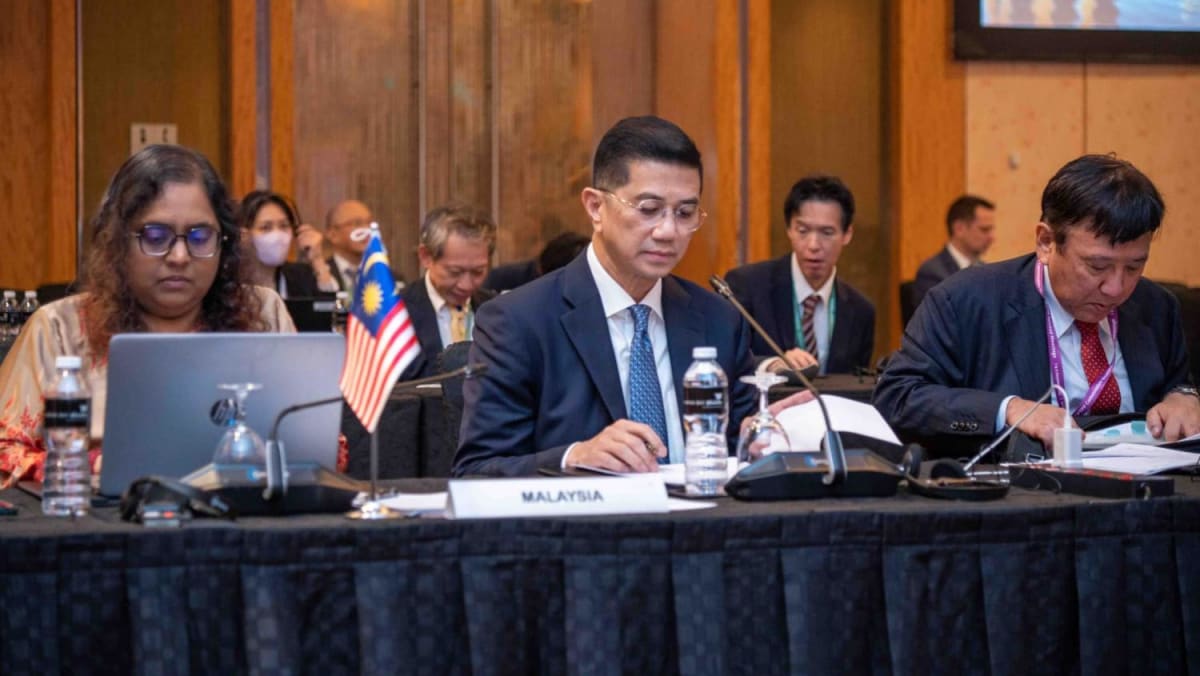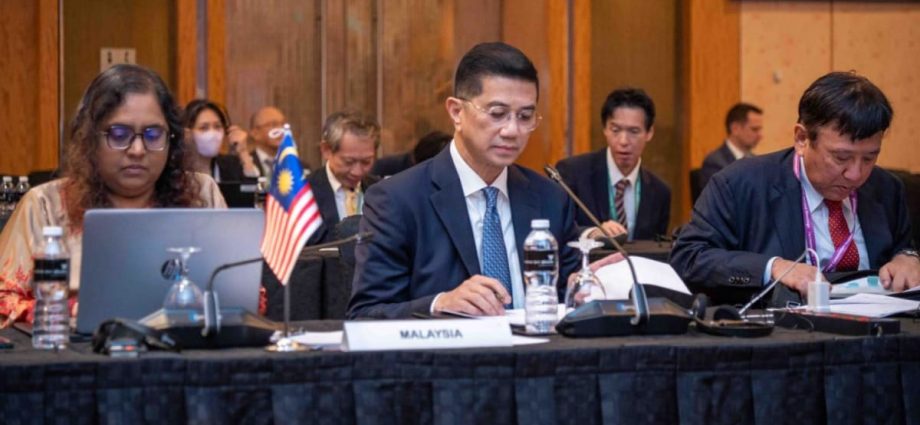
SINGAPORE: Malaysia was welcomed as a party to the 11-nation Comprehensive and Progressive Agreement for Trans-Pacific Partnership (CPTPP) on Saturday (Oct 8).
Following a meeting of the CPTPP commission, Singapore’s Minister for Trade and Industry Gan Kim Yong announced that Malaysia had completed its official ratification process of the CPTPP free trade agreement.
“Malaysia’s addition as a party to the CPTPP will further deepen economic integration, boost the economic coverage of the agreement and enhance the mutual benefits that parties reap from the CPTPP,” said the Ministry of Trade and Industry (MTI) in a statement.
The CPTPP will enter into force for Malaysia on Nov 29, leaving Brunei and Chile as the only countries yet to ratify the trade pact.
Malaysia’s Senior Minister and Minister of International Trade and Industry Mohamed Azmin Ali said in a Facebook post on Saturday that CPTPP members have demonstrated “firm solidarity, fraternity and shared ideals” towards the meaningful adoption of a rules-based multilateral trading system.
“Moving forward, Malaysia will continue to work together to engage with all members in implementing and enhancing the partnership,” said Mr Azmin Ali.
Singapore is the 2022 chair of the CPTPP commission and Mr Gan chaired its sixth meeting on Saturday.
Ministers and senior officials representing New Zealand, Australia, Brunei Darussalam, Canada, Chile, Japan, Malaysia, Mexico, Peru and Vietnam attended the meeting, which marked the first time representatives of all CPTPP members met in person since the COVID-19 pandemic.
The CPTPP is the successor of the Trans-Pacific Partnership (TPP), which pulled together 12 nations around the Pacific rim, including Singapore and the United States, to draw up a more ambitious set of trading rules.
The TPP died in January 2017 when the Donald Trump administration in the US withdrew from the agreement despite it already being signed. The 11 remaining nations decided to continue as the CPTPP.
Economies like China, Taiwan and South Korea have since shown interest in joining the pact.
UK ACCESSION PROCESS
In an update on the expansion of the CPTPP to other economies, Mr Gan said that discussions on the United Kingdom’s (UK) accession is ongoing.
“As this is the first accession by an aspirant economy, it is important that we do it well and put in place the right processes, so as to uphold the CPTPP’s high standard rules and ambition, in terms of market access commitments,” he said.
In January last year, the UK announced plans to formally apply to join the CPTPP.
Representatives of CPTPP members also acknowledged in a joint statement all efforts made to ensure the UK’s compliance with the obligations of the agreement.
“We note the growing interest from aspirant economies to accede to the CPTPP. In support of the agreement’s open architecture, we will reflect on the ongoing accession process with the United Kingdom and continue to exchange views on the CPTPP’s expansion,” said the statement.
“We will also continue efforts to address subsequent applications in accordance with the CPTPP accession process and inform ourselves on whether aspirant economies can meet the CPTPP’s high standards, taking into account their experience on their trade commitments.”
STUDYING CPTPP IMPACT
In conjunction with the CPTPP’s third year of entry into force, Mr Gan said research institutions based in the CPTPP region have assessed the impact of the agreement on trade and investment flows in the region.
Initial findings showed that intra-CPTPP trade increased by more than 4 per cent to US$467 billion in the first year into CPTPP, compared with an average of US$448 billion for the 2010-2018 period.
Intra-CPTPP digital services trade increased by 46 per cent to US$51.9 billion in 2019, compared to an average of US$35.5 billion for the 2010-2018 period.
Foreign direct investment inflows also increased by 10 per cent from US$267 billion in 2018 to US$294 billion in 2019.
“Small and Medium Enterprises (SMEs), employment of women and indigenous populations benefited from growth as well, and cross-border R&D activities amongst CPTPP parties were rich and interconnected,” said Mr Gan.
The CPTPP’s impact on regional supply chains will also be assessed.
“Members are now studying these data, and will continue discussions on how the findings can translate to policy outcomes that enhance the CPTPP’s relevance and benefits to businesses and supply chains,” Mr Gan said.
SUPPORTING GLOBAL ECONOMIC RECOVERY
The minister added on Saturday that CPTPP members will continue to explore new and emerging areas of cooperation in the digital and green economies.
In its joint statement, the CPTPP commission also reaffirmed its commitment to explore “concrete ways to foster an enabling environment for trade and investment flows”.
This comes amid lowered forecasts for global growth by the International Monetary Fund and World Bank.
Members also highlighted the importance of preserving economic security and to cooperate to counter protectionism and unjustified trade restrictive measures.
“We reaffirm our strong commitment to upholding and supporting the rules-based multilateral trading system, with the World Trade Organization at its core, including as a means for responding to economic coercion,” they added.
“We remain resolute in our continued commitment to facilitate the flow of essential goods and services in a manner consistent with and supportive of international trade rules.
“More than ever, we must ensure that trade works for all, including women, indigenous peoples and small and medium-sized enterprises.”
The next CPTPP commission meeting will be hosted by New Zealand in 2023.

